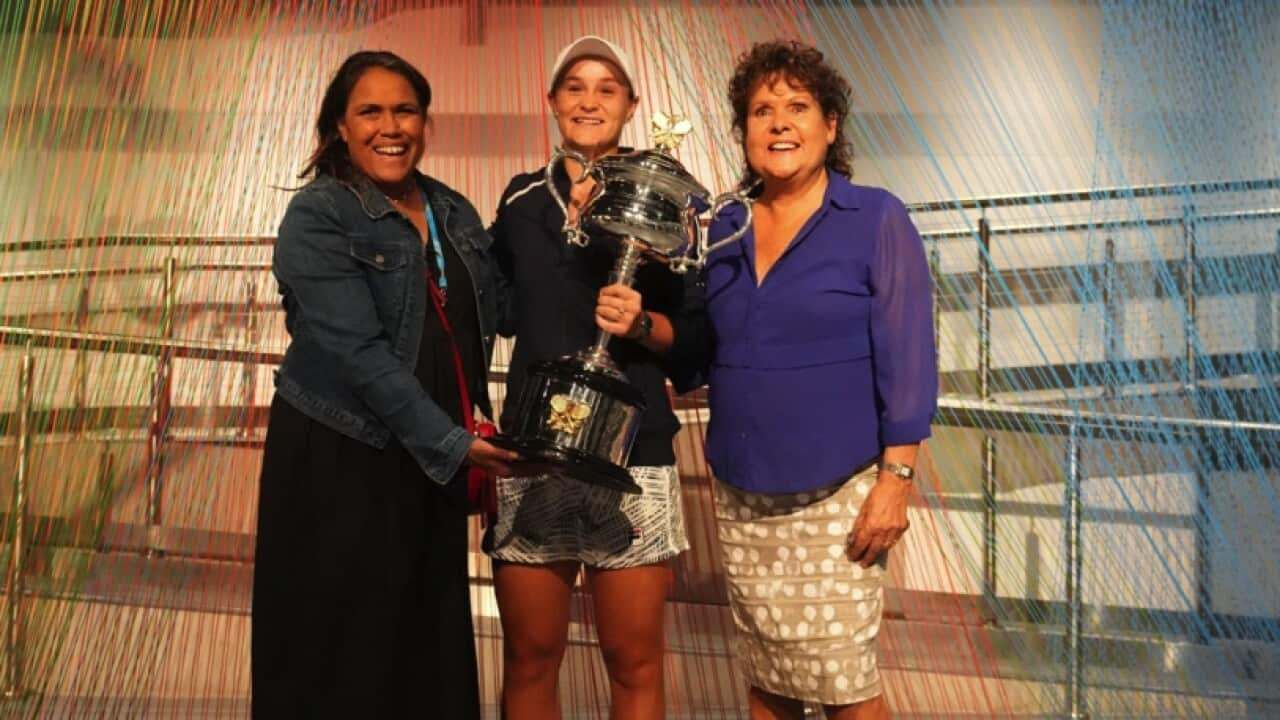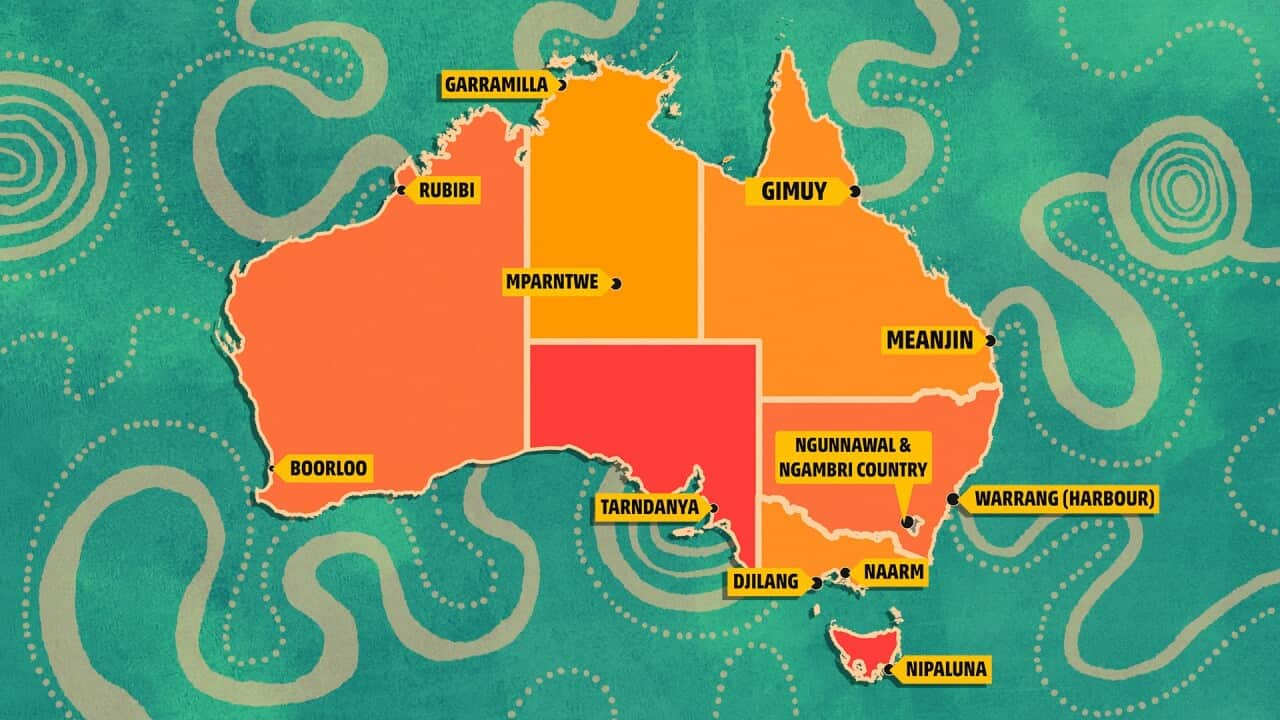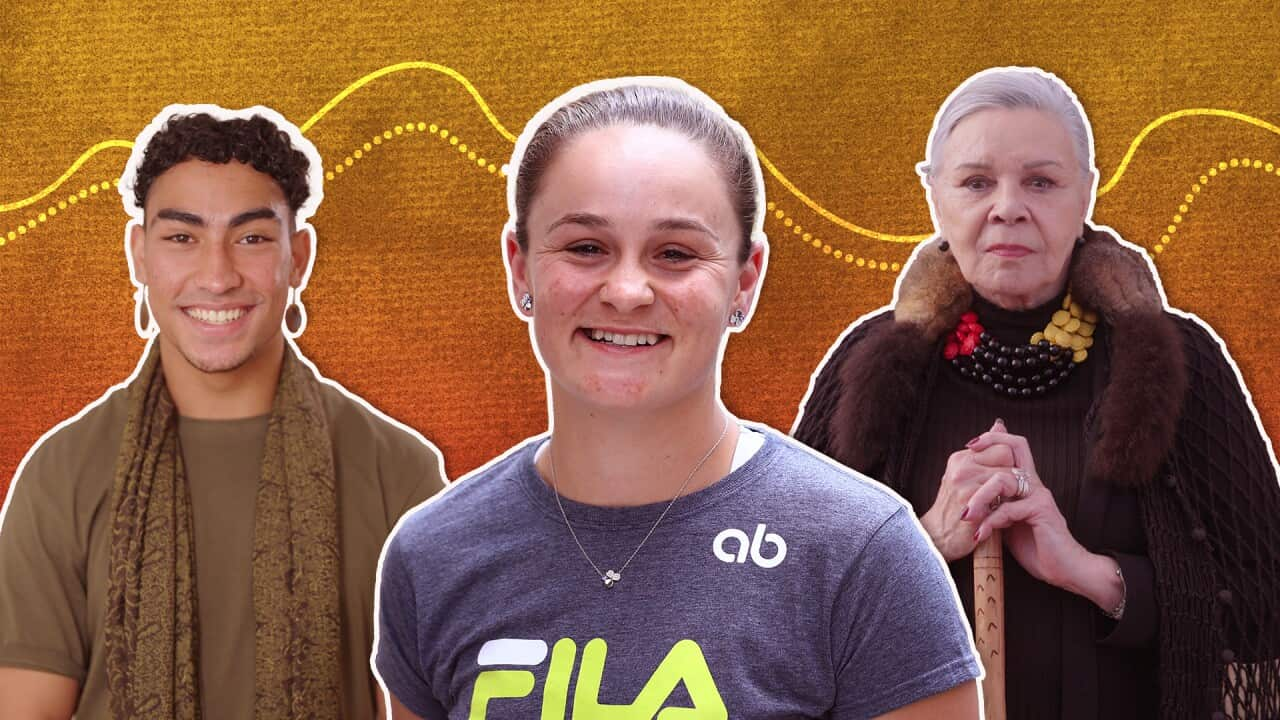Lowell Hunter has always been called to the sea.
A Nyul Nyul man from the Dampier Peninsula in Western Australia, he grew up on Gunditjmara Country, and would escape to the shore at times when he needed a release.
"I'd go down to the beach as a way of just looking after myself, my mental health, my wellbeing," he told NITV.
"It's always a nice place to be to gather thoughts, and process different things that might be going on in my life, or I'd take the family down there.
"It's just a good way for me to fill up my cup."
It was in this way, a natural process of connecting with Country, that he happened upon his art practice just two and a half years ago.
Something of an entrepreneur, Lowell was leading cultural awareness training sessions at the time; important work, as his personal experience attested.
"Because there have been times throughout my life where I've been at work, either in employment, or playing footy, or just in the community in general, where I haven't felt safe, and I haven't been able to be my whole self."
The awareness training would often leave him feeling depleted, as he revisited both historical and personal traumas. Often following these sessions, he would rely on his faithful tonic for restoration and visit the sea.
"One particular afternoon, after delivering a session, I decided to draw a sand-art, only a circle," he said.
"I sat in that circle, and actually drew some 'U' shapes on the outside of that, which represented Old People and ancestors to me, and I set myself in the circle. I just really felt safe and strong and proud. I felt connected, grounded, and culturally safe.
"That was two and a half years ago, and now I'm creating that works... all over Victoria."
His works, and the interest in them, have grown exponentially.
Sometimes they may not look like much from the ground, but take to the sky, and their scope is revealed.

An aerial photo of one of Lowell's sand artworks. Source: www.saltyone.com.au
An ephemeral dance
It's a rare art that uses a canvas that puts that art at imminent and inevitable risk of destruction.
But that's exactly what Lowell's canvas does.
"It's ephemeral... the process of my work, and it's not there for long. I actually enjoy that, because it's allowing me to live in the moment," he said.
"We have so many distractions in the world, and often we don't allow time to listen to... what's going on in our own worlds. So I love being able to have two to five hours that is time to myself."
While Lowell's artworks are best seen from above, if you're lucky enough to catch him in the act, the very process of creating his sand works is an art in itself.
He 'dances' the carvings into the sand, sometimes daubing traditional ochre paint on his face or scrubbing his skin with salt water, sometimes with rhythm sticks in hand.
He used to dance professionally, and was engaged in performances all over the world, from Africa to Asia.
"Now I feel like I'm just dancing for myself, and grateful to be connecting to the land as a salt water man."

Lowell used to dance professionally. Now a part of his art, his says his dance is just for him. Source: www.visitvictoria.com.au
Passing on cultural connection
In conversation, Lowell repeatedly returns to the idea of connecting to culture and Country.
He says it was instrumental in his own upbringing.
"I grew up away from Country. I grew up away from my own family," he said.
"If it wasn't for the community that I grew up in, in Warrnambool on Gunditjmara Country, I wouldn't have been able to really fully understand what it means to be Aboriginal, and what it means to connect to culture and to Country.
"So I feel like, to some degree, I have a responsibility of passing on that knowledge, and the opportunities that I had as a young person to the next generation."
This is why Lowell often visits schools and youth organisations to speak to kids, especially First Nations youth.
He says it's "essential work".
"We have young people growing up now not even knowing who their mob is, not knowing what culture is about, not having avenues to connect to culture.
"So if I can play a small part in introducing those people to that world, the beautiful world that we live in, to our mob and our culture and our history, then hopefully it can help those young people stand strong and proud in their identity.
"They're not going to shy away from being Blakfullas. That's probably the most important thing for me."













